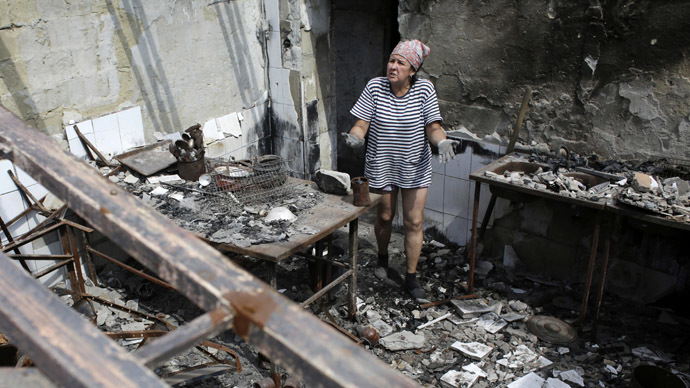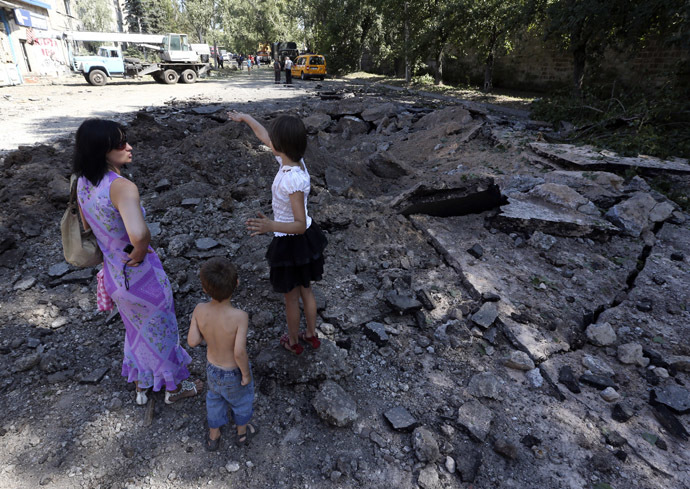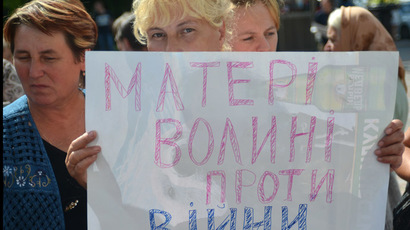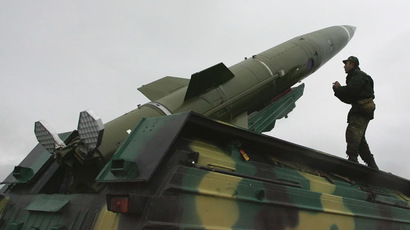UN: Scared of the way military operations conducted in E. Ukraine

The UN has expressed its major concern over the plight of the eastern Ukrainian territories and their soaring numbers of refugees. There are 118,000 internally displaced people, and 740,000 have fled to Russia during the crisis.
All-out war in E. Ukraine, intl humanitarian mission needed – Russia’s UN envoy
“What we are scared about is the way the military operations are conducted. What will happen if we have intense fighting inside the big urban centers of Lugansk and Donetsk? Fighting in highly intensified urban areas could lead to massive exodus and massive destruction,” UN High Commissioner for Refugees Vincent Cochetel stated on Tuesday.
Almost 4 million people live in a region that has been the hardest-hit by violence, and “face imminent security threats from the fighting,” which has also led to massive damage to infrastructure and the interruption of power and water supplies, John Ging, the head of UN’s Office for Coordination of Humanitarian Affairs, stated.
Humanitarian catastrophe: Lugansk, E. Ukraine, left with no water, power
Donetsk and Lugansk are home to 1.5 million people, and the water supply there has diminished to being only available for a few hours a day. Medical supplies also dangerously low.
Another major concern is that around 70 percent of medics have fled the area.
Currently, 118,000 internally displaced people are registered in Ukraine, with 87 percent of them having fled the east of the country, according to UN data. Over 1,000 people are reportedly leaving the conflict zone each day.
Those numbers can’t be viewed as comprehensive, as “many Ukrainians left their homes without officially registering with the Ukrainian authorities or not addressing them directly.”
740,000 refugees have arrived in Russia since the beginning of this year, according to Russian and UN estimates.
Some former residents – and now refugees – told RT’s Maria Finoshina how and why their lives have changed forever.
“They were bombing us non-stop, day and night. They hit our neighbor’s house, killing her. How can one live in this country?” Tatyana Belyaeva, a Lugansk resident, said.
“My house was destroyed, there’s nothing left. <…> There were no strategic targets in our neighborhood,” Pyotr Seletsky, a Lugansk resident and ER doctor, told RT.
And his wife spoke of how they had lost their home.
“I have no idea what kind of a bomb can turn a house into an inferno in a matter of minutes,” Elena said.
“The temperature was so high that the bricks crumbled,” she added.
At least 1,367 people, civilians and military, have been killed and 4,087 people wounded by fighting in eastern Ukraine since mid-April.

Ging drew attention to the issue of civilian evacuation from areas affected by the military conflict.
Humanitarian corridors are “open for several hours each day, but these are regularly blocked by combatants, and the evacuation of people through these channels is impeded.”
Kiev's bloody eastern Ukraine campaign LIVE UPDATES
The UN also demanded that Kiev stops taking customs fees from the humanitarian aid that arrives in the country, and also simplify UN employees’ access into Ukraine.
Moreover, “a unified system is necessary to register the internally displaced persons, a system that will allow to fully analyze and understand the people’s needs,” Ging stated.
“Humanitarian aid should be free of customs payments. Apart from that, it is necessary to accelerate the process of signing and ratifying the agreement between the UN and the government about the simplification of the entry to the country for humanitarian workers and the import of loads,” the official added.
The key component of UN plans to provide humanitarian aid is preparation for the winter when freezing temperatures will prevail.
“We need to assure that all the necessary efforts are taken to address the consequences of the coming winter – which is expected to be severe - for the forcibly displaced people,” Ging stressed.














